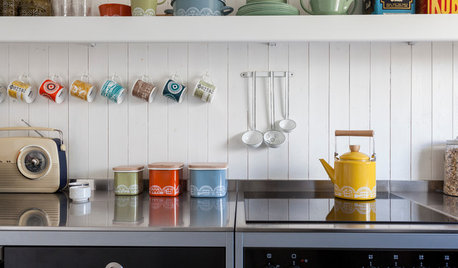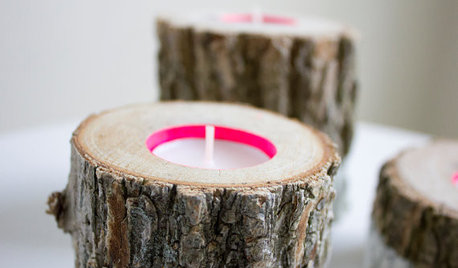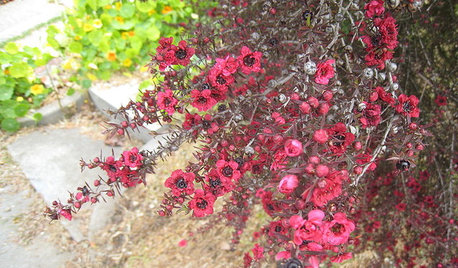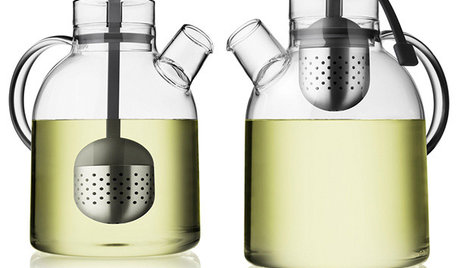Vermicompost Tea Bags
Elbourne
11 years ago
Related Stories

DIY PROJECTSDining Set Makeover: Paint and Tea-Tinted Fabric Make Old Chairs New
Reclaim dated dining chairs for far less than buying new, using spray paint, modern fabric and a handful of tea bags
Full Story
LIFEHow Do You Make Your Tea and Coffee in the Morning?
A morning cup is a must for many, and preparation comes in many guises. We look at coffee and tea habits across the Houzz community
Full Story
SHOP HOUZZHouzz Products: A Special Spring Tea Party
Have your friends over for the loveliest tea party yet with fun serving pieces, tableware and accessories from our Products section
Full Story
PRODUCT PICKSGuest Picks: Have a Spot of Tea Lights
Set your home aglow with these pretty, rustic, modern and creative tea lights and holders
Full Story
ENTERTAININGGuest Picks: Tea Party With a Modern Palette
Turn a traditional tea party on its head with the colors of citron, peach and lime
Full Story
KITCHEN DESIGNHot Ideas and Tips for Coffee and Tea Stations
Let options like drawer inserts and built-in coffeemakers percolate now, so your hot-drinks station can best serve holiday guests
Full Story
ENTERTAININGHow to Host a Tea Party at Home
Many people are reacquainting themselves with the gracious British ritual, steeped in tradition, that is perfect for an outdoor gathering
Full Story
GARDENING GUIDESGreat Design Plant: New Zealand Tea Tree
Balance pretty polish and ruggedness in a temperate garden with this low-maintenance and drought-tolerant flowering shrub
Full Story
ENTERTAININGThe Busy Mom's Guide to Throwing a Kids' Holiday Tea Party
Even Fancy Nancy would thrill to be a guest at this easy event, where no one will know the shortcuts but you
Full Story
PRODUCT PICKSGuest Picks: Tea and Coffee Accessories
19 teapots, coffee makers, mugs and more to brew your morning cup in style
Full Story





Raw_Nature
ElbourneOriginal Author
Related Professionals
Arlington Landscape Architects & Landscape Designers · Barrington Hills Landscape Architects & Landscape Designers · La Marque Landscape Architects & Landscape Designers · Concord Landscape Contractors · Darien Landscape Contractors · Fair Oaks Landscape Contractors · Hickory Hills Landscape Contractors · Nanuet Landscape Contractors · New Baltimore Landscape Contractors · Vancouver Landscape Contractors · Waipahu Landscape Contractors · Camp Springs Landscape Contractors · Solana Beach Decks, Patios & Outdoor Enclosures · Schaumburg Decks, Patios & Outdoor Enclosures · Pleasant Grove Decks, Patios & Outdoor EnclosuresRaw_Nature
gumby_ct
worm_composting_help
ElbourneOriginal Author
Raw_Nature
nil13
Raw_Nature
nil13
nil13
Raw_Nature
Kimmsr
nil13
nil13
nil13
Raw_Nature
nil13
compostgal
Raw_Nature
Kimmsr
nil13
hummersteve
Miguelovic
mendopete
compostgal
robertz6